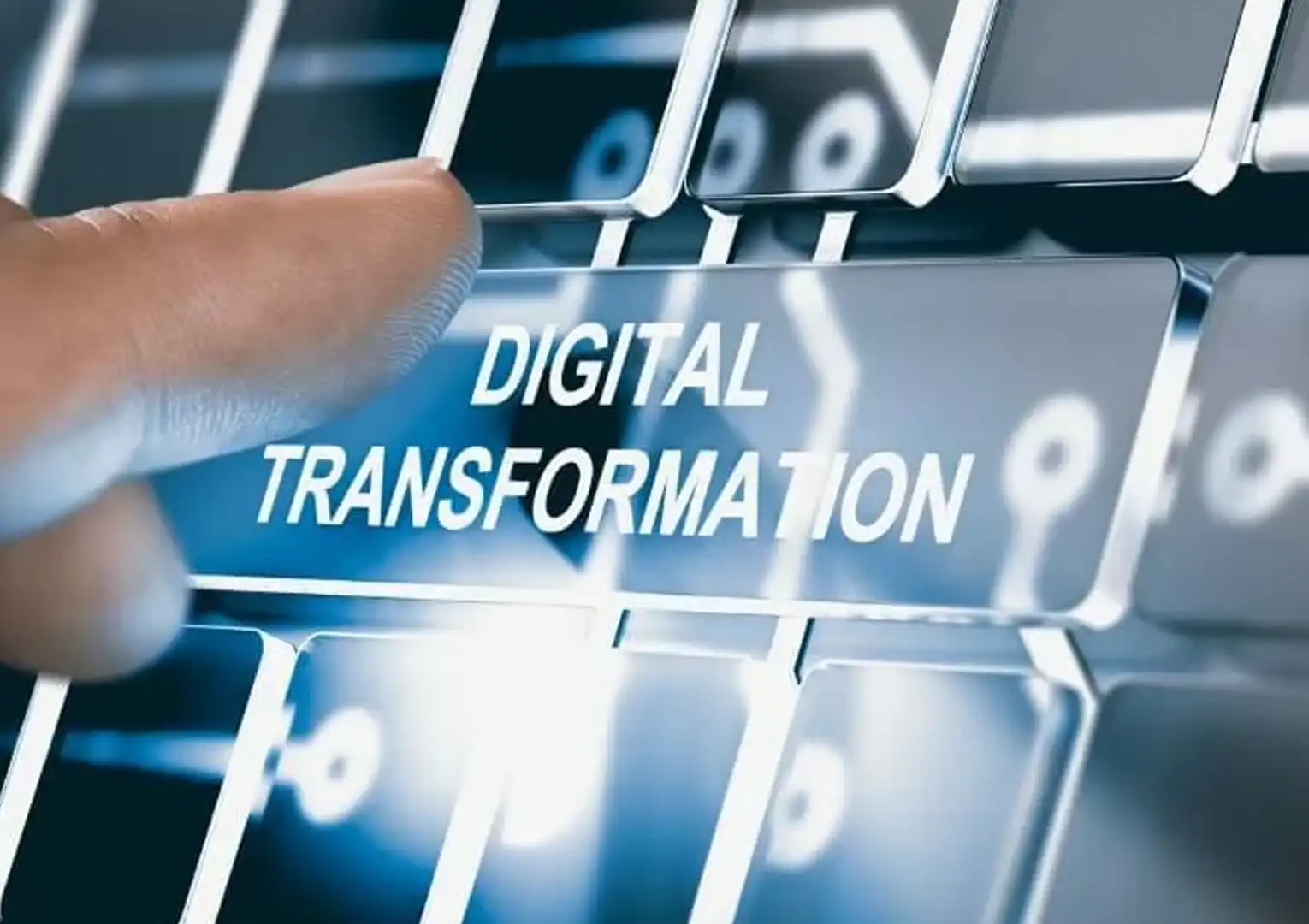Business Digitalization: Definition and Benefits for MSMEs (Micro, Small, and Medium Enterprises)
July 18, 2025
Bisnis, Bisnis Digital
Share This Article

In today’s digital era, the term business digitalization is becoming increasingly common. Many entrepreneurs—especially those running micro, small, and medium enterprises (MSMEs)—are starting to explore this approach to grow their businesses. But what exactly is business digitalization, and why is it so important?
It’s important to understand that business digitalization is not just about creating social media accounts or having an online store website. It’s a strategic move that helps streamline business processes, making them faster, more efficient, and aligned with today’s technological developments.
If you’re an MSME business owner, this article will walk you through the concept of business digitalization and its key benefits. Let’s dive in!
What Is Business Digitalization?
Business digitalization is the process of transforming traditional or manual business systems and activities into technology-based operations. This process can involve various elements, from using accounting software and CRM (Customer Relationship Management) systems to automating marketing efforts.
The main goal is to make business operations faster, more accurate, and better integrated. In today’s digital era, digitalization allows you to save time and effort while significantly increasing productivity.
Moreover, digitalization helps business owners reach customers more easily, analyze sales data effectively, and make business decisions based on reliable information.
Benefits of Digitalization for MSMEs
Before we dive into the details, it's important to understand that digital transformation isn’t just for large corporations. In fact, business digitalization offers numerous advantages for MSME entrepreneurs, enabling them to compete more effectively in the digital market. Let’s take a closer look at
some of the key benefits:
1. Operational Efficiency
With business digitalization, time-consuming manual processes can be significantly shortened. For example, bookkeeping that once relied on handwritten records can now be managed through accounting apps. This helps entrepreneurs save time and energy while minimizing the risk of human error.
Efficiency becomes even more crucial as the business grows and requires more structured systems. With digital dashboards, you can monitor team performance, inventory, and financial reports in real time.
2. Expanded Market Reach
Digitalization allows you to sell products not only offline but also online. Through digital platforms such as e-commerce, social media, or sales apps like Labamu, your market reach can grow dramatically. By reaching customers in different cities—or even countries—your sales potential increases significantly.
Today, you're no longer limited to serving local customers. And with digital promotions, reaching new markets becomes much more affordable and measurable compared to traditional marketing methods.
3. Enhanced Customer Experience
Digital tools help you better understand your customers. For instance, transaction data can show which products are top-sellers or when your customers prefer to shop. With this information, you can deliver more personalized and relevant services.
Examples include offering special promos for loyal customers or personalized product recommendations based on purchase history. Customer support can also become faster and more efficient through chatbots or automated response systems.
4. Improved Competitiveness
MSMEs that embrace digitalization have a clear edge over businesses that still rely on conventional methods. By adopting technology, business owners can respond more quickly to market trends, customer demands, and shifting consumer behaviors.
Digital tools also allow you to test new strategies with minimal risk. For example, you can run a short-term digital ad campaign and instantly track the results. If it works, you can maintain or scale it up. If not, you can quickly pivot without wasting much budget—keeping your business agile and efficient.
5. Easier Analysis and Decision-Making
Business digitalization helps organize operational and company data in a structured way, making it easier to analyze. For example, you can track monthly sales, identify your most profitable products, and pinpoint operational costs that can be reduced.
With valid data, business decisions can be made more accurately and strategically. No more relying on instinct—now you can act based on credible information. You can also measure promotional success, adjust inventory levels, and develop long-term business strategies.
6. Supporting Sustainable Business Growth
Digital transformation isn’t just a short-term solution to today’s business challenges—it’s a valuable long-term investment. With a strong digital foundation, your business will be better prepared to adapt to future developments and market changes.
For instance, once your operations are digitalized, it becomes easier to expand your product lines, open new branches, or build strategic partnerships with other businesses. Digitalization also boosts your confidence when seeking investor funding, as your business systems and data are well-organized and transparent.
All of this contributes to sustainable growth and strengthens your business against future challenges.
Business digitalization is an essential step that every entrepreneur—including MSME owners—should consider. With the right digital tools, your business processes become more efficient, your data more accurate, and your decision-making more effective.
Digitalization doesn’t just make operations easier; it also unlocks wider market opportunities. If you want your MSME to grow and thrive, now is the perfect time to start your digital journey.
You don’t have to go big right away. Start small—try digital bookkeeping, online marketing, or using a dedicated MSME app like Labamu. And if you need guidance, LabamuHub is ready to support your digitalization journey with practical insights directly from experienced business professionals.














